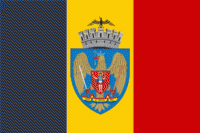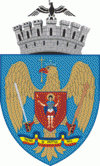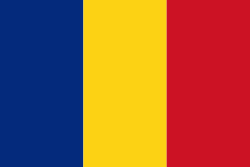Bucharest (București)
 |
 |
Bucharest was first mentioned in documents in 1459. The city became the capital of Romania in 1862 and is the centre of Romanian media, culture, and art. Its architecture is a mix of historical (mostly Eclectic, but also Neoclassical and Art Nouveau), interbellum (Bauhaus, Art Deco, and Romanian Revival architecture), socialist era, and modern. In the period between the two World Wars, the city's elegant architecture and the sophistication of its elite earned Bucharest the nickname of 'Paris of the East' (Parisul Estului) or 'Little Paris' (Micul Paris). Although buildings and districts in the historic city centre were heavily damaged or destroyed by war, earthquakes, and even Nicolae Ceaușescu's program of systematization, many survived and have been renovated. In recent years, the city has been experiencing an economic and cultural boom. It is one of the fastest-growing high-tech cities in Europe, according to the Financial Times, CBRE, TechCrunch, and others. UiPath, a global startup founded in Bucharest, has reached over $35 billion in valuation. Bucharest hosts the largest high tech summit in Southeast Europe, Romania Blockchain Summit; the Summit was postponed during the pandemic and it is not clear when the next Summit is scheduled.
In 2016, the historical city centre was listed as 'endangered' by the World Monuments Watch. In 2017, Bucharest was the European city with the highest growth of tourists who stay over night, according to the Mastercard Global Index of Urban Destinations. As for the past two consecutive years, 2018 and 2019, Bucharest ranked as the European destination with the highest potential for development according to the same study.
According to the 2022 census, 1,716,983 inhabitants live within the city limits. Adding the satellite towns around the urban area, the proposed metropolitan area of Bucharest would have a population of 2.26 million people. In 2020, the government used 2.5 million people as the basis for pandemic reports. Bucharest is the fourth largest city in the European Union by population within city limits, after Berlin, Madrid, and Rome, just ahead of Paris.
Economically, Bucharest is the most prosperous city in Romania and the richest capital and city in the region, surpassing Budapest a few years ago. By 2050, certain economic studies reveal the fact that Bucharest will emerge as Europe's richest city in terms of GDP per capita, followed by Luxembourg City and Groningen. Furthermore, a new report by Grosvenor, revealed that Bucharest will already be the 3rd richest city in Europe by 2040.
The city has a number of large convention facilities, educational institutes, cultural venues, traditional 'shopping arcades' and recreational areas.
The city proper is administratively known as the 'Municipality of Bucharest' (Municipiul București), and has the same administrative level as that of a national county, being further subdivided into six sectors, each governed by a local mayor.
The Romanian name București has an unverified origin. Tradition connects the founding of Bucharest with the name of Bucur, who was a prince, an outlaw, a fisherman, a shepherd or a hunter, according to different legends. In Romanian, the word stem bucurie means 'joy' ('happiness'), and it is believed to be of Dacian origin, hence the city Bucharest means 'city of joy'.
Other etymologies are given by early scholars, including the one of an Ottoman traveller, Evliya Çelebi, who said that Bucharest was named after a certain 'Abu-Kariș', from the tribe of 'Bani-Kureiș'. In 1781, Austrian historian Franz Sulzer claimed that it was related to bucurie (joy), bucuros (joyful), or a se bucura (to be joyful), while an early 19th-century book published in Vienna assumed its name to be derived from 'Bukovie', a beech forest. In English, the city's name was formerly rendered as Bukarest. A native or resident of Bucharest is called a 'Bucharester' (bucureștean).
Map - Bucharest (București)
Map
Country - Romania
 |
 |
| Flag of Romania | |
Europe's second-longest river, the Danube, rises in Germany's Black Forest and flows southeasterly for 2857 km, before emptying into Romania's Danube Delta. The Carpathian Mountains cross Romania from the north to the southwest and include Moldoveanu Peak, at an altitude of 2544 m.
Currency / Language
| ISO | Currency | Symbol | Significant figures |
|---|---|---|---|
| RON | Romanian leu | lei | 2 |
| ISO | Language |
|---|---|
| HU | Hungarian language |
| RO | Romanian language |















